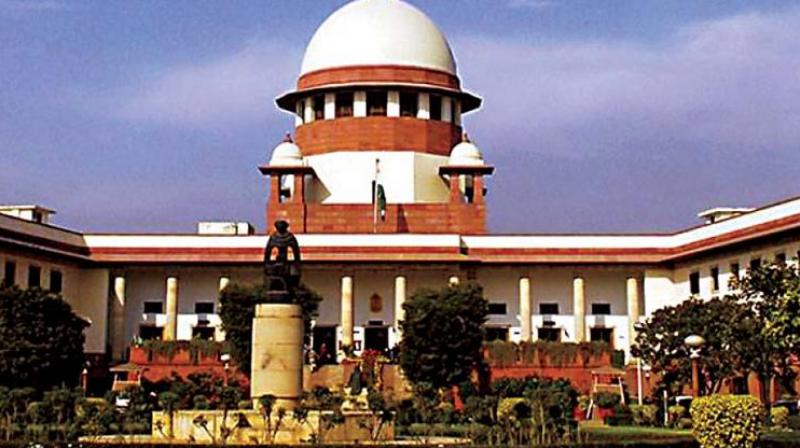Supreme Court demands clarity on naming Chief Information Commissioner
The plea stated that several State information commissions were functioning without the chief information commissioner.

New Delhi: The Supreme Court on Friday directed the Centre to ensure transparency in the process of appointment of the Chief Information Commissioner (CIC) and Information Commissioners at the Central and State level.
A Bench of Justices A.K. Sikri and Abdul Nazeer, passing orders on a PIL filed by RTI activist Anjali Bharadwal also issued directions on completing the appointment process within a time frame of six months.
The plea stated that several State information commissions were functioning without the chief information commissioner, even though the RTI Act envisages a crucial role for this post on which the administration and superintendence of the commission is vested. The Centre and the state have “attempted to stifle” the functioning of the Right To Information Act by failing to do their statutory duty of ensuring appointment of commissioners in the CIC and SIC in a timely manner.
Advocate Prashant Bhushan for the petitioners contended that not only in the Central Information Commission, but also in the State Information Commissions posts are lying vacant and no effective steps are taken in filling of these vacancies.
The Bench disposing of the petition directed the Centre and States to upload in the website the details of the process so that there would be more transparency. The Court has also directed the Search Committee to make the criteria for appointment public to ensure that the appointments are made objectively. The Court said the short-listed candidates should be from across various fields and not just from bureaucracy. Further Information Commissions should be insulated from direct executive control.
In order to ensure that a post does not lie vacant for a long time, the Court directed the process of filling up of a vacancy to be initiated two months prior to the date on which the post is likely to be vacated. Likewise, it would also be appropriate for the Search Committee to make the criteria for short-listing the candidates, public, so that it is ensured that short listing is done on the basis of objective and rational criteria.
The Bench said that insofar as terms and conditions of appointment are concerned, no doubt, Section 13(5) of RTI Act states that the CIC and Information Commissioners shall be appointed on the same terms and conditions as applicable to the Chief Election Commissioner/Election Commissioner. At the same time, it would also be appropriate if the said terms and conditions on which such appointments are to be made are specifically stipulated in the advertisement and put on website as well.
The Bench said the Act is enacted not only to sub-serve and ensure freedom of speech. On proper implementation, it has the potential to bring about good governance, which is an integral part of any vibrant democracy. Attaining good governance is also one of the visions of the Constitution. It also has vital connection with the development.

